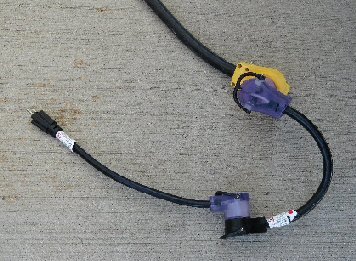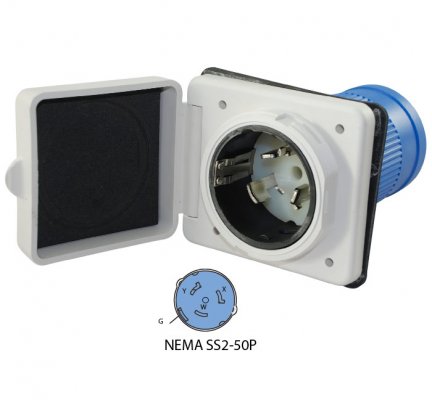Theboomanchu
Well-known member
- Joined
- Apr 3, 2015
- Posts
- 58
We recently purchased this Cougar 5th wheel and actually went through all the systems while the sellers were camping near our home and hooked up to 50 A service at the campground. We had an extensive list (pre-delivery list printed from the library on this site) of components to check and everything worked fine.
The seller said what he does prior to heading out to go camping is to hook up the trailer to his regular 110v service at home, to start the fridge cooling down the day before they leave using the adapters as shown in the attached picture since he doesn't have 50 amp service at home. We don't as of yet have a 50 amp plug set up at home for the camper so tried to plug it in as he mentioned. It immediately trips the GFCI circuit. I have checked to make sure nothing is turned on, including the electrical side of the water heater to no avail.
It is obviously a ground (fault?) issue of some sort rather than too high of a current draw, but I don't understand these GFCI outlets well enough and/or the relationship between our house electrical and the trailer. What am I missing here? Any Ideas?
The seller said what he does prior to heading out to go camping is to hook up the trailer to his regular 110v service at home, to start the fridge cooling down the day before they leave using the adapters as shown in the attached picture since he doesn't have 50 amp service at home. We don't as of yet have a 50 amp plug set up at home for the camper so tried to plug it in as he mentioned. It immediately trips the GFCI circuit. I have checked to make sure nothing is turned on, including the electrical side of the water heater to no avail.
It is obviously a ground (fault?) issue of some sort rather than too high of a current draw, but I don't understand these GFCI outlets well enough and/or the relationship between our house electrical and the trailer. What am I missing here? Any Ideas?


